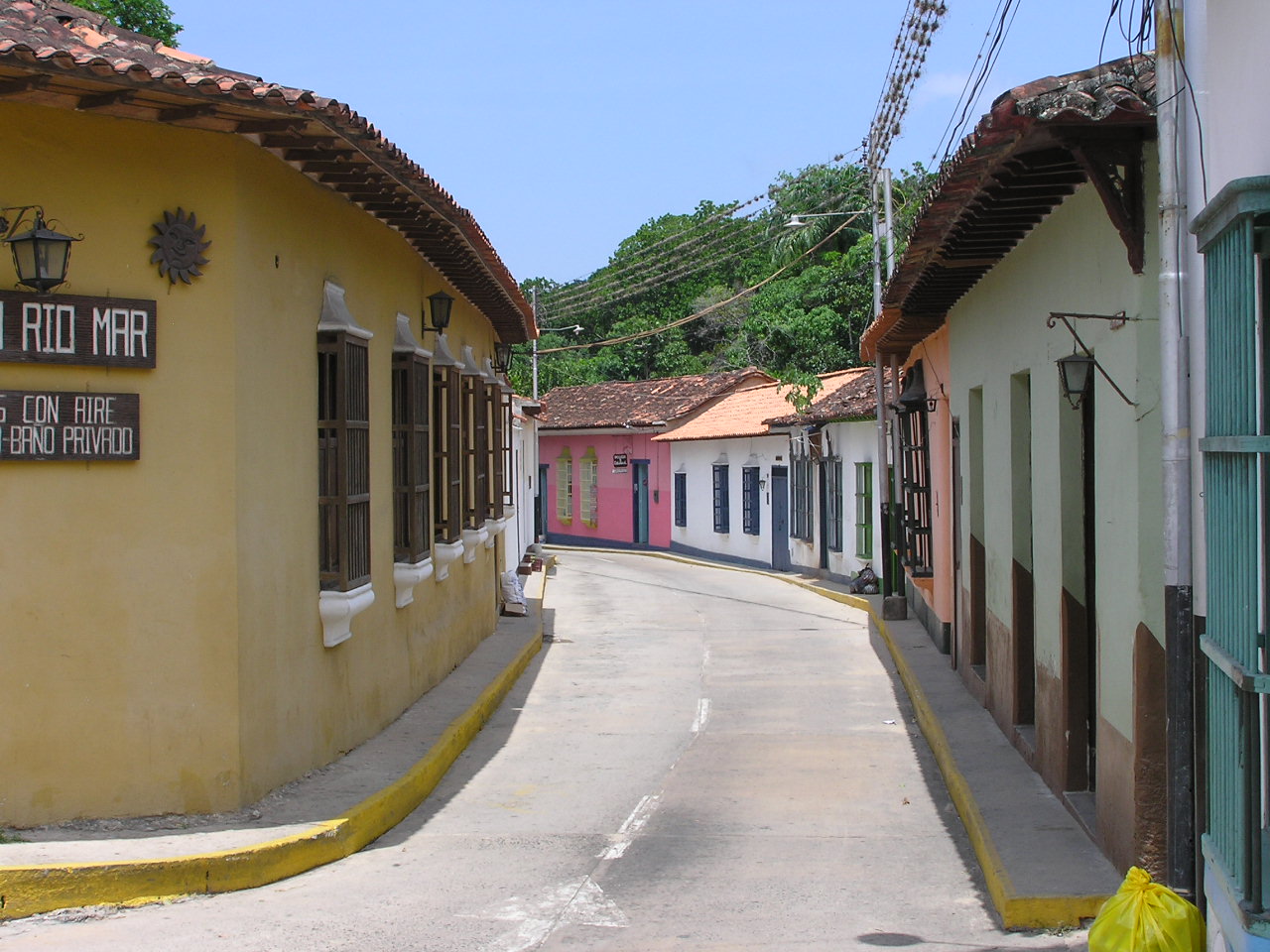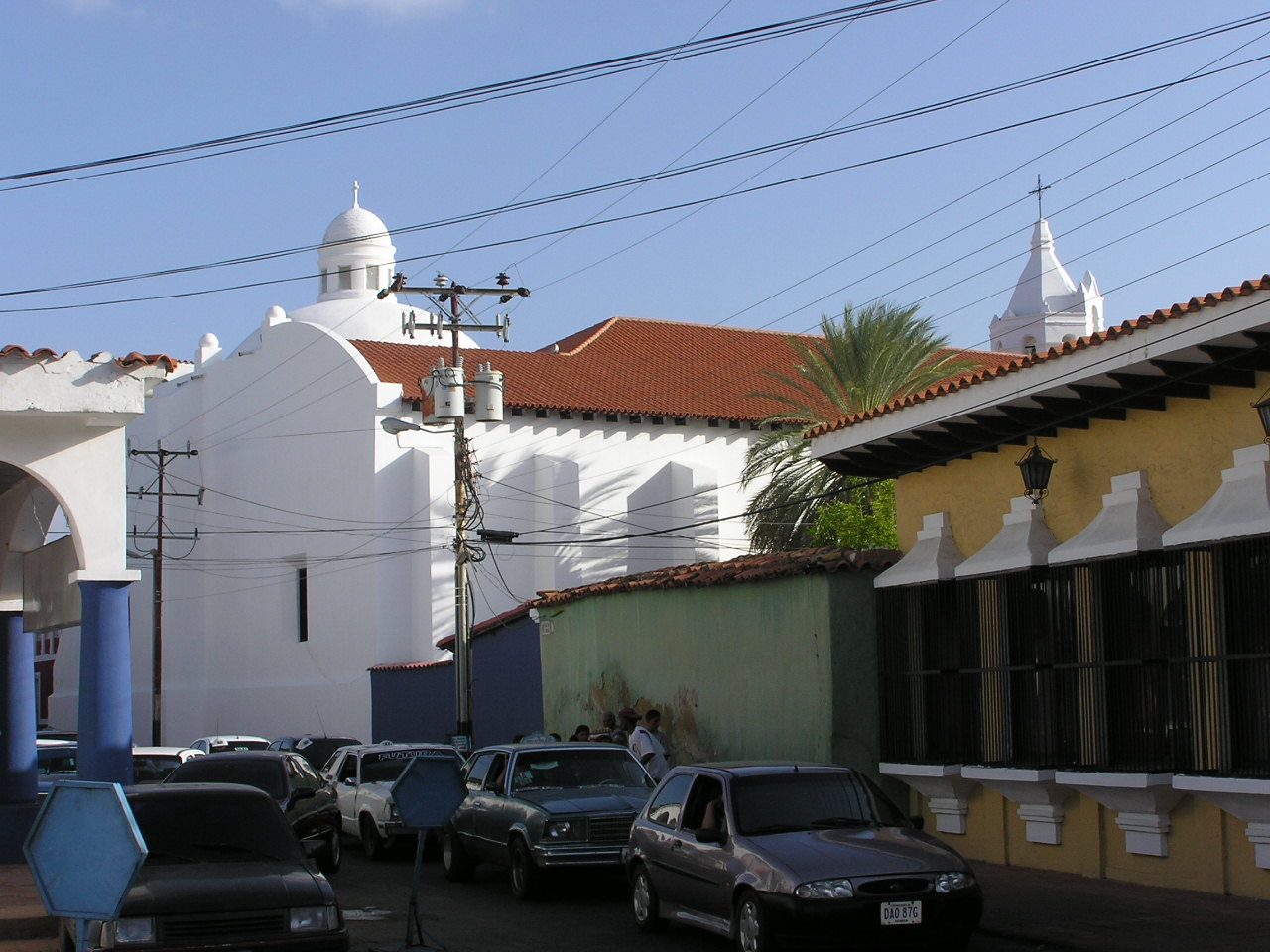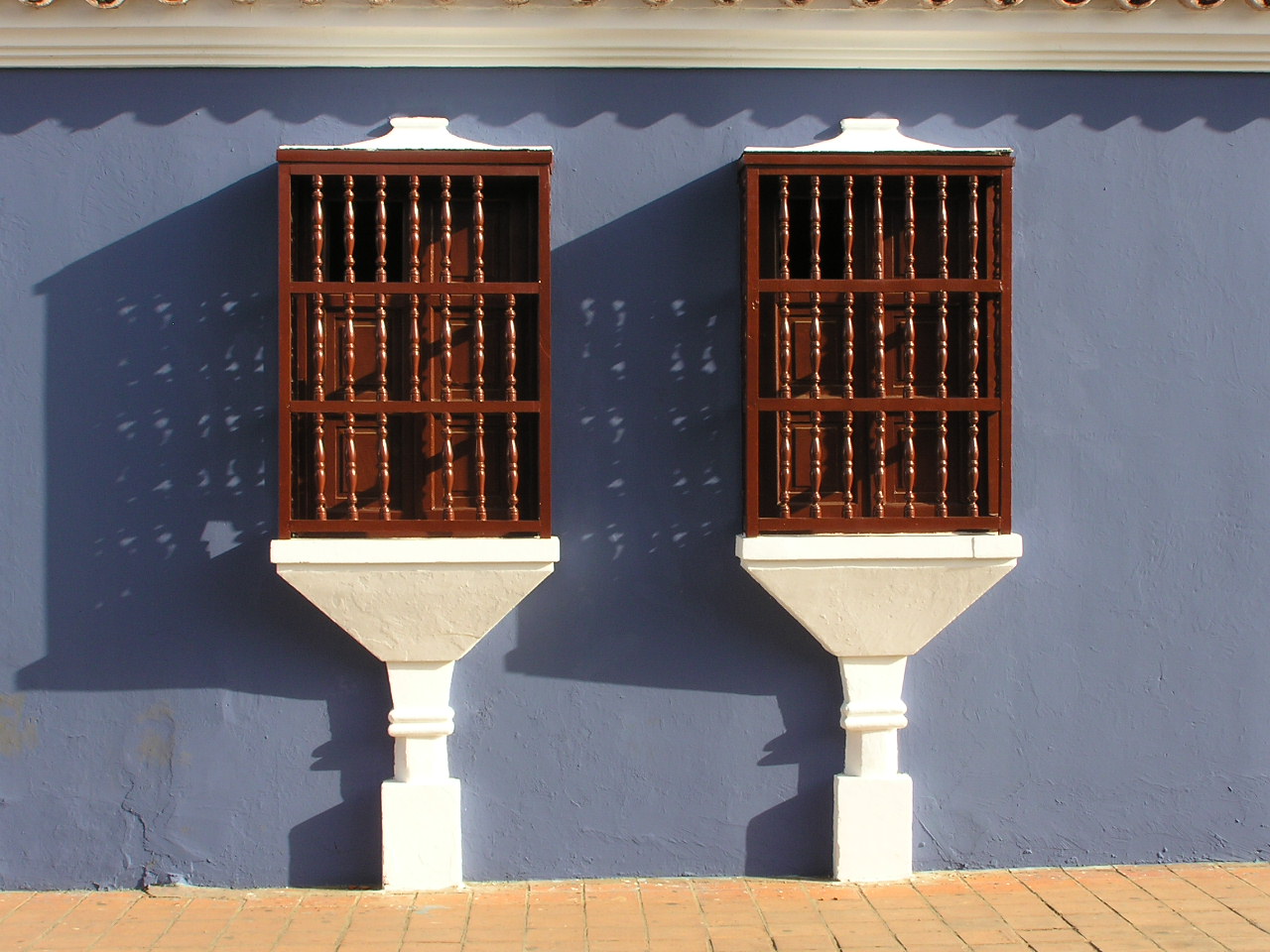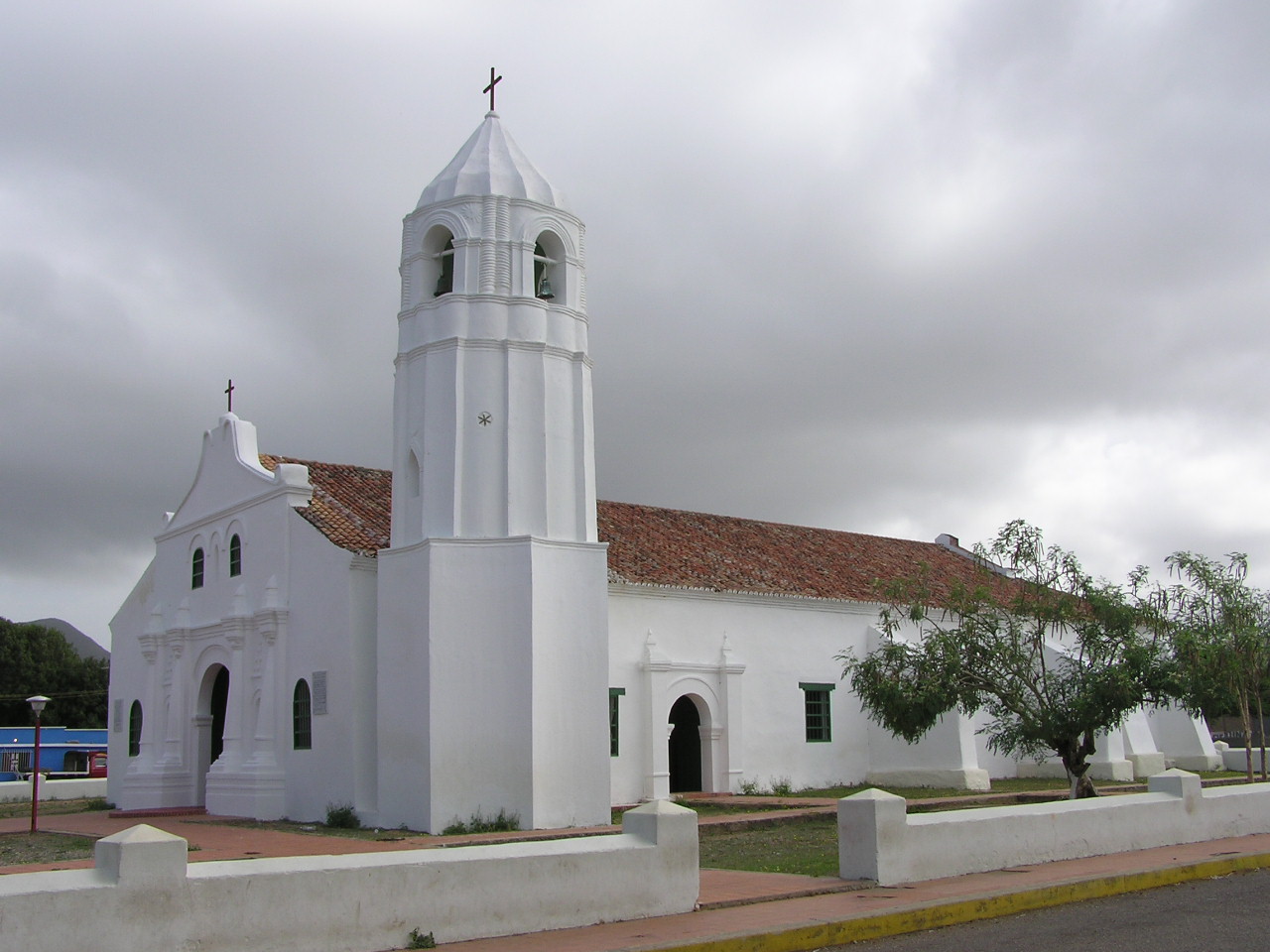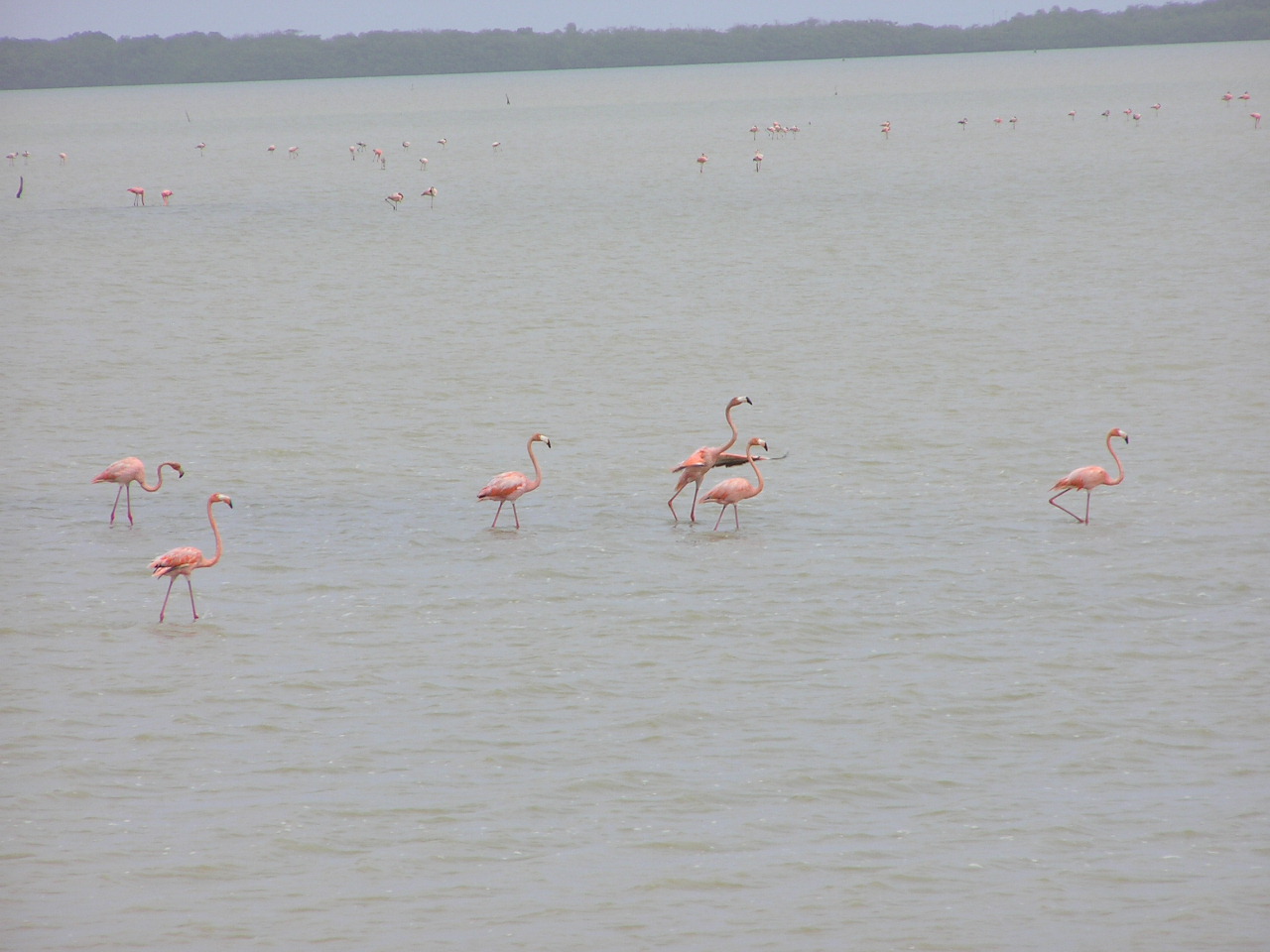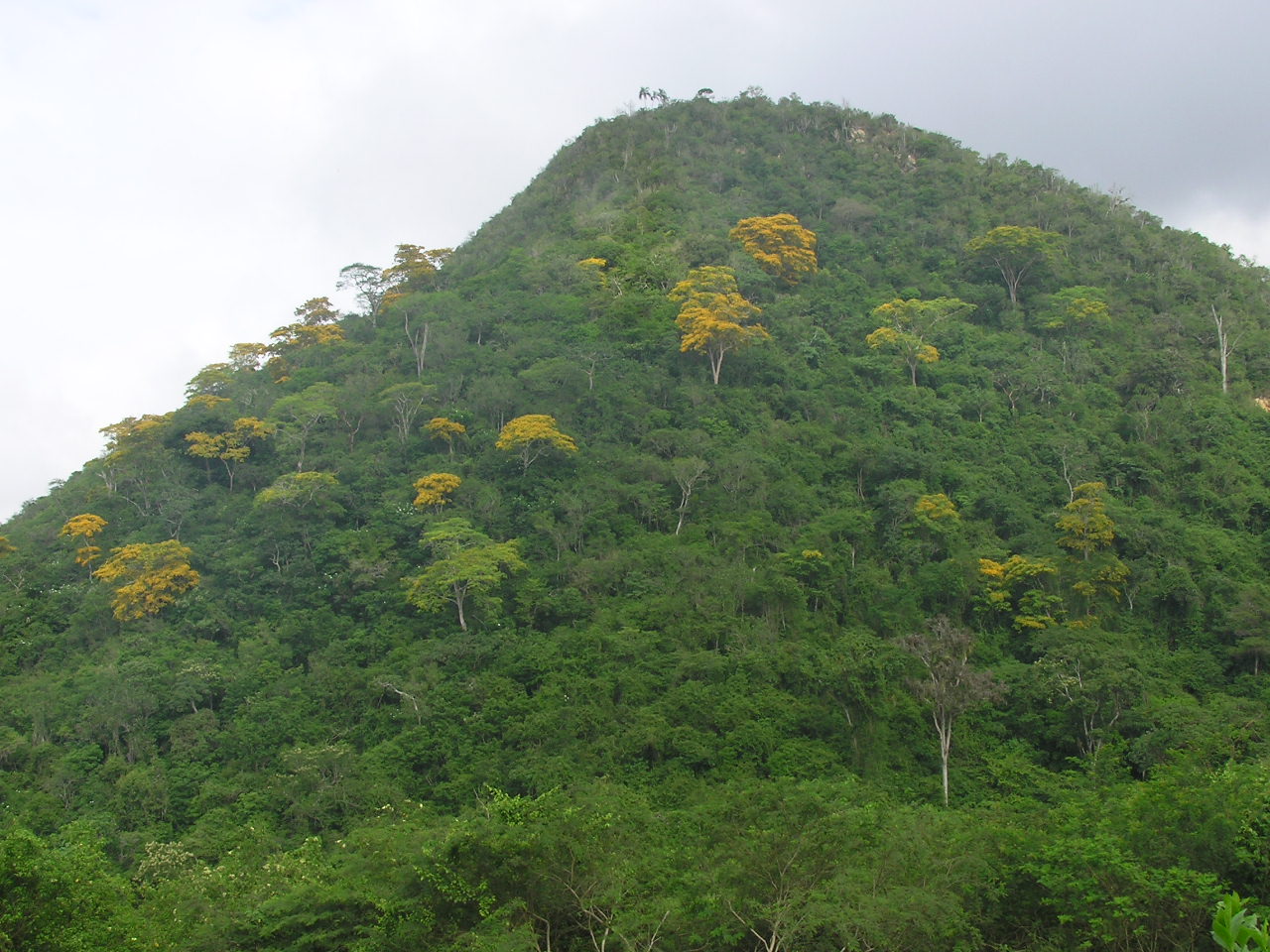(5) Venezuela: Moving West
It was with reluctance that I left Colonia Tovar.It was with reluctance that I left Colonia Tovar. Such a nice, pleasant and relaxed place was hard to find here in Venezuela. Without the pressures and chaos of traffic and the mad crush of markets in the streets, a pleasant lifestyle greeted those who called this place home.7,000 ft below me life returned to the Venezuelan norm. Dodging traffic and suffering the heat I moved west...not far...just far enough to swing north to the coast across Henri Pittier Nacional Park to Choroni. The 60 kms of road took one hour to climb the coastal range and one hour to descend.
Choroni was one of the oldest Spanish settlements in the New World and retained much of its Old World charm. However, being a weekend and a town only 2 kms from the Caribbean, it was packed with weekenders. There were too many people for my liking. I turned around and rode back out. The Park was much more to my liking.
The little jaunt had consumed the day. It was 3PM when I returned to Maracay and I was searching for an hotel. A yellow 2000 R1150 GS pulled out of a side street as I entered town. That was how I met Jose. He took it upon himself to get me settled before he returned to work. What can I say? The town was busy on this friday and he had his secretary make several calls before we settled on a place that was to his liking...and mine too.
Tomorrow, Sunday was still part of the weekend and I was heading north to yet another weekenders haunt. It was not my choice but if I didn't go now I wouldn't go. The traffic was heavy as I entered Taracay near Parque Nacionale Morrocay. I split laned to get through town in a hurry. Further north, the sister town of Chichivaray was much the same. I had come to view the thousands of pink flamingos and that done I continued north to Coro.
Coro was one of the first cities on the continent. Founded in 1527 it was razed and burned to the ground many times, mostly by pirates and most recently in 1659. Most of its colonial architecture dates from after that period, except for the fortress like cathedral which was started in 1543 and evolved over the next violent century, within the fires that razed the town.
Unlike most Venezuelan colonial towns and cities that fell victim to the whim of the many short sighted contemporary dictator's wrecking balls, Coro for some unexplained reason survived intact. Today it is undergoing that lifetime task of salvation, restoration and preservation. For that it has been rewarded with the honorable title of being the only Venezuelan town to achieve the status of World Heritage Site and appear on the UNESCO list.
Peninsula Paraguana was once an island but persistent wind, waves and sand have built up a sandbar 30 km long, connecting it with the mainland. Inhabitated for centuries by the Amuay, Guaranao and Caquetio Indians, all of the Arawak linguistic group, the Spanish made short work of them and their culture and soon drove them to extinction. Not a trace remains today, of them or their culture.
A few Spanish towns and villages continue to subsist today in this desolate and desiccated environment, revived in part by the current surge in tourism which further serves to strain the already overtaxed and fragile environment. Perhaps the one thing that has remained constant is the thousands of pink flamingos that migrate here to feed in the shallow, nutrient rich waters of the two lagoons on the eastern reaches of the peninsula.
The Parque Nacional Sierra de San Luis was a pleasant surprise. The detailed maps showed several road options all looking like a demented pretzel. How demented I could not tell from here so I went in for a closer look. Very demented! Perched 5,000 ft above where I fueled up it was a forbidding but delightful maze of twisted roads, hairpin corners, cloud forest scenery, small towns, hidden pousadas and more road choices than I thought was possible in this rugged, unmolested terrain.
I started before noon and had my sights set on traversing the area in an hour or two. By 3 PM I was well confused by the list of road choices and by 4 PM I was at least 2 hours short of my intended destination, although now I at least knew where I was.
I gassed up again with the thought I might have to make a run for it to beat the night. However, a well placed question had me reconsidering my options. The service station attendant said there was a 'new' hotel in town although that is a relative term. The town itself was 'well used', and the local hotel had the look that would force even me to race against the night in quest of a more amenable accomodation. Yet another well placed question, directed at the local police, pointed me towards a more contemporary establishment perched on a hill overlooking the town. Built as a tourist hotel a decade or more ago, it had not aged well, but still was completely acceptable and self-contained with its own restaurant.
I hate racing the clock especially since I already had a full day of tough riding under my belt. I could not help but smile inwardly at my discovery, as I settled into a relaxing afternoon and evening to match.
Tomorrow's ride proved my hunch. A hard 2 hours ride to my destination would have had me fighting darkness and fatigue, a combination I do not relish in these third world countries....or any for that matter.
But, what a truly delightful area. You could ride here for a week enjoying the roads, the scenery and the hospitality of these lost and forgotten towns and country pousadas.
I rounded a corner and stared at a pickup truck spun sideways, half in the ditch and half out, its rear rim bent and its driveshaft laying beneath it, possibly the cause of the whole event. A crowd had gathered. I moved on.
I am very surprised by Venezuela. This northern half is extremely rugged. Ridge follows ridge, like accordian pleats, as you move towards the Caribbean. Its proximity to the equator produces cloud forest or rain forest or both. The peaks are not high but a differential of 5,000-6,000 ft exists on this eastern branch of the Andes,as the road snakes it way up, down, around and sometimes through the folds.
Even though they support agriculture, these mountains are difficult to cultivate, because of their sharp slopes, and yield only to subsistence farming at best. Removing the lush vegetation exposes the fragile environment to slides and leaching of the soils, as the abundant rains strive to destabilize the entire land mass and move it to a lower elevation.
What these people do is beyond me. Countless hundreds of young, old and intermediate alike seem to spend their time waiting beside the road, laying on it or sitting on the edge watching the passing traffic whiz by a scant few feet from their heads, seemingly oblivious to the danger involved.
Venezuela was the world´s largest oil exporting nation until the mid '70s. It was fundamental in setting up OPEC. Today it has been relegated to third position behind Saudi Arabia and some other Middle Eastern country. But that's a moot point. The point is...what happened to those countless billions of oil dollars?...billions of dollars daily at today's prices...billions upon billions of dollars for a least half a century. It didn't go into the infrastructure. It didn't go into the roads. Where did it go? Where does it continue to go? Most likely into some politicians bottomless pocket. And when he dies the money is gone forever...passed on within the family 'ad infinitum'.
As in most of these top loaded, dictatorial controlled countries the poor have no escape. Relegated to mountain tops, cloud forests, city slums and other remote and isolated communities they have no mechanism to better their lot...to change their lives. Educational opportunities are minimal or non-existent, hardly extending beyond the first one or two years of elementary school. Then the roadside existence begins...standing or sitting beside the road waiting for something to happen...waiting for the White Guy to pass by. Turning in unison, to watch him as he moves down the road and disappears around a corner. Who was that masked man? Did it happen? Was it a mirage?
...Or...
was it Palladin?
Have Gun Will Travel
With the Card of a Man
A Knight Without Armour
In a Savage Land

